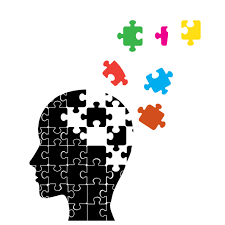Alzheimer’s affects over half a million Canadians, with an additional 25,000 people diagnosed every year. The numbers are only rising, with predictions showing nearly one million people affected by the year 2031.
Technion researchers are bringing hope to the horizon with progressive innovations from early detection to slowing the clock on the symptoms.
Mission to the Brain
Technion researchers have found a way to slow and possibly repair the effects of Alzheimer’s. Will the new technology discovered by Professor Ester Segal’s research team be capable of breaking through our brain’s natural defense system?
Putting the Pieces Together
Thanks to Runway, a startup postdoc program operated by Cornell Tech (the New York-based joint venture between Cornell University and Israeli research university, Technion Israel Institute of Technology), Quantified Biology is now getting the funding needed to develop their algorithm to help researchers find a cure for Alzheimer’s.
A New Drug for Alzheimer’s
An effective drug for neurodegenerative diseases such as Alzheimer’s could one day be on the horizon thanks to research conducted in the Technion’s Wolfson Faculty of Chemical Engineering. A new connection between toxic fibrils and the structure of a-helical strands in proteins, discovered by Prof. Simcha Srebnic and doctoral student Boris Haimov, has already been generously supported by two fellowships.
A Different Type of Breathalyzer
Exhaled breath is the most accessible and useful source for monitoring health and disorders. Prof. Hossam Haick, of the Department of Chemical Engineering and Russell Berrie Nanotechnology Institute of the Technion, has developed a breathalyzer capable of detecting the early onset of Parkinson’s disease. The researchers have also identified the breath characteristics of 17 diseases, inlcuding Alzheimer’s, which would allow doctors to use this same technology for earlier detection and treatment.
Smart Phone for Life
Analysis of text-based communications can reveal a lot about an individual. Renee Zacharowicz and Travis Allen, both Technion-Cornell Dual Master’s Degrees in Health Tech ’19, researched how an algorithm could be utilized to understand these “digital traces” and to detect a decline in language performance that could be an early indicator of Alzheimer’s.
It’s not always easy. For every successful invention or breakthrough idea, there are hundreds of setbacks. Hurdles. Failures. But through it all, the Technion persists — because when your mission is to do good, nothing can get in your way.
Your generous support of the Technion ensures that, no matter the obstacles, good ideas get out of the lab so they can start changing and saving lives. You can help further research and innovation for Alzheimer’s research, and all world health.







